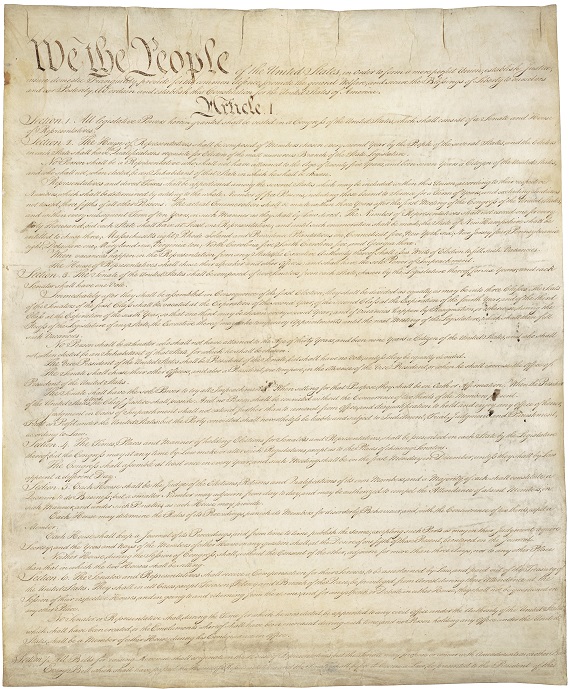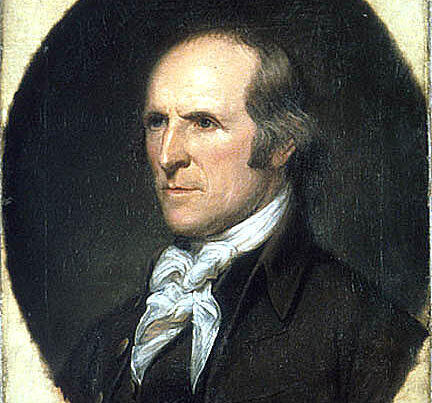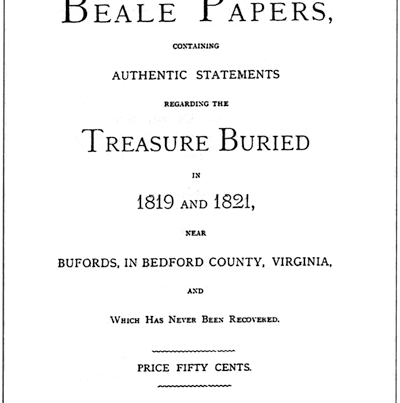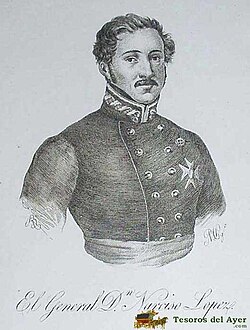A friend of mine translated a book on Lincoln written by Karl Marx in which her first installment was a refutation by Marx of the European press’s contention that the assault by the North on the South was not about slavery but economic and political power. Of course, one cannot divorce the issue of slavery from either consideration, but Marx was wrong when he stated that the conflict was “all about slavery,” as he saw the matter in the context of the “Workers’ Struggle.”
I will not dispute Marx who, as noted, saw things from a particular – and peculiar – viewpoint, but I have seen a great deal of opinion on this issue, that is, that the validity of the actions of both sides were either right or wrong based solely upon motive. In other words, the validity of the acts depended upon the motive that inspired them. In a debate in my local Roundtable about the constitutionality of secession, one of those involved declared that he had searched diligently for a “smoking gun” — a cause that would have justified the secession of South Carolina and the Cotton States — but could not find one. Of course, I disagreed entirely! To begin with, the economic and social exploitation of the States and People of the South through the ongoing theft of their wealth by the rest of the nation would have been a sufficient “smoking gun” for any reasonable person! Neither is that exploitation a relatively recent finding. Missouri Senator Thomas H. Benton in 1828 — three decades before the Cotton States attempted to escape political and financial servitude — speaking on the floor of the United States Senate declared:
“Before the (American) revolution [the South] was the seat of wealth … Wealth has fled from the South, and settled in regions north of the Potomac: and this in the face of the fact, that the South, … has exported produce, since the Revolution, to the value of eight hundred millions of dollars; and the North has exported comparatively nothing. Such an export would indicate unparalleled wealth, but what is the fact? … Under Federal legislation, the exports of the South have been the basis of the Federal revenue …Virginia, the two Carolinas, and Georgia, may be said to defray three-fourths of the annual expense of supporting the Federal Government; and of this great sum, annually furnished by them, nothing or next to nothing is returned to them, in the shape of Government expenditures. That expenditure flows…northwardly, in one uniform, uninterrupted, and perennial stream. This is the reason why wealth disappears from the South and rises up in the North. Federal legislation does all this!”
But at the time I also pointed out that the argument itself was irrelevant! There was nothing in the Constitution about secession including any prerequisites for its institution. That is why the act itself cannot be considered un-constitutional! Indeed, one person of note at the time queried petulantly why that document did not forbid secession. A better informed person simply pointed out that to do so would have prevented its ratification! As the Constitution could not possibly make mention of all those acts considered legitimate to its signatory States — for to do so would have made it a library and not a document — the Framers determined only to define such acts as were not permitted, one of which was not secession!
However, there are matters directly referable to secession relative to the Constitution but these are found in the ratification documents of three States — Virginia, New York and Rhode Island. In the case of the latter two, all that was required as a motive for those States to remove themselves from the union established by the Constitution was “the happiness” of their citizens! Had my opponent used that criterion, he would have found more than enough “smoking guns” throughout the South to validate secession!
Virginia’s Ratification:
We the Delegates of the people of Virginia, duly elected in pursuance of a recommendation from the General Assembly, and now met in Convention, having fully and freely investigated and discussed the proceedings of the Federal Convention, and being prepared as well as the most mature deliberation hath enabled us, to decide thereon, DO in the name and in behalf of the people of Virginia, declare and make known that the powers granted under the Constitution, being derived from the people of the United States may be resumed by them whensoever the same shall be perverted to their injury or oppression, and that every power not granted thereby remains with them and at their will: that therefore no right of any denomination, can be cancelled, abridged, restrained or modified, by the Congress, by the Senate or House of Representatives acting in any capacity, by the President or any department or officer of the United States, except in those instances in which power is given by the Constitution for those purposes: and that among other essential rights, the liberty of conscience and of the press cannot be cancelled, abridged, restrained or modified by any authority of the United States.
New York’s Ratification:
We, the delegates of the people of the state of New York, duly elected and met in Convention, having maturely considered the Constitution for the United States of America, agreed to on the 17th day of September, in the year 1787 — Do declare and make known, —
That the powers of government may be reassumed by the people whensoever it shall become necessary to their happiness; that every power, jurisdiction, and right, which is not by the said Constitution clearly delegated to the Congress of the United States, or the departments of the government thereof, remains to the people of the several states, or to their respective state governments, to whom they may have granted the same; and that those clauses in the said Constitution, which declare that Congress shall not have or exercise certain powers, do not imply that Congress is entitled to any powers not given by the said Constitution; but such clauses are to be construed either as exceptions to certain specified powers, or as inserted merely for greater caution.
That all power is originally vested in, and consequently derived from, the people, and that government is instituted by them for their common interest, protection, and security.
Rhode Island’s Ratification:
III. That the powers of government may be reassumed by the people whensoever it shall become necessary to their happiness. That the rights of the states respectively to nominate and appoint all state officers, and every other power, jurisdiction, and right, which is not by the said Constitution clearly delegated to the Congress of the United States, or to the departments of government thereof, remain to the people of the several states, or their respective state governments, to whom they may have granted the same; and that those clauses in the Constitution which declare that Congress shall not have or exercise certain powers, do not imply that Congress is entitled to any powers not given by the said Constitution; but such clauses are to be construed as exceptions to certain specified powers, or as inserted merely for greater caution.
But the true problem with his argument was the belief that a “sufficient motive” was required to validate secession even had the Constitution allowed it, and, that that motive had to be morally and intellectually acceptable by all the rest of the States remaining in the Union! This is nonsense! Such a criteria would have immediately nullified the option! The reason the Lincoln government and the rest of the States of the Union went to war against the South had nothing to do with their motive for secession. Lincoln declared “civil war” on South Carolina and the Cotton States for economic reasons! Simply put, secession could not be permitted in his new American Nation! The motivation of those states was inconsequential. Secession was considered by Lincoln and his supporters the recourse of an earlier time — that of the Republic of the Founders. But an “indissoluble union” — a concept found in the defunct Articles of Confederation but not in the Constitution — was a necessity for the “nation” that Lincoln defined in the Gettysburg address! We must remember that such a “nation” – a word not found in the Constitution – had not heretofore existed! It was this “nation” that Lincoln and the Radicals required to enable the United States to enter the Age of Empire as an important player on the world stage. The old-fashioned Jeffersonian relics found in the South — liberty, individualism, Christian values and self-government — had to be destroyed and replaced by total submission to the New England vision of a City on a Hill, a “city” in which there was no place for either “regional diversity” or the Constitution!
In recognition of this fact, after issuing the Emancipation Proclamation, Lincoln openly declared, “…the character of the war will be changed. It will be one of subjugation . . . the South is to be destroyed and replaced by new propositions and ideas.” Lincoln’s policies turned the war into the very thing he had once warned against: “ . . . a remorseless revolutionary struggle” in which not only the Old South was eradicated, but the concept of a Federal Union as laid down by the Constitution and the sovereignty of every State was also destroyed. In the election of 1864, federal military brutality served both Lincoln’s political needs and his statist philosophy, but even then the Radicals required considerable fraud and threats to prevail in their own country, albeit there were many in the North who supported him on the ruins of Southern cities and the corpses of Southern women and children even while exhausted Southern armies continued to inflict military defeat on Grant’s vastly superior numbers during the Wilderness campaign.
Do motives matter? Yes – and no. A good motive can validate a reckless or foolish action but it can never validate a wicked one! Lincoln and his supporters used false motives to validate their criminal and unconstitutional actions; that is, making a case for the belief that the ends justify the means. This same false argument continues today as people seek out “motives” that permit them to accept what is both morally and legally unacceptable. Of course this is fairly easy to do when these people are ignorant of both the history and the truth about such motives.







The South’s economic system was confined to the malarial zone of these united States. This was done by the power of the House of Representatives due to the greater population in the States not in the malarial zone. European immigrants flooded into the non-malarial States. Had the entire united States consisted of the malarial zone, this imbalance would not have occurred.
West Africans developed sickle cell as a defense against malaria during centuries of exposure on the African continent. As a result, west Africans were able to survive as a labor force in the malarial zone of the New World. Malaria and other diseases native to the Old World wiped out vast numbers of New World inhabitants. It wouldn’t have mattered “who” came from the Old World to the New. “He” was bringing pestilence not experienced by the isolated New World. This supply of African slave labor (already enslaved in Africa since time immemorial) found a demand in the malarial zone of the New World due to the catastrophic loss of life associated with European immigration.
The South had been used as a colony by the non-slave States due to this population imbalance. Fiscal matters originate in the House of Representatives in the US Congress. “Something for nothing” has always been a popular election slogan.
The South should have been more honest about its motives. But, “we are leaving because we did not anticipate joining a union where we’d have to foot the bill for the non-slave States” was a hard sell when at the same time, the South was proudly proclaiming “King Cotton rules the world”. As currently exists in most of the United States, property values determine local government revenues. The South was the wealthiest region of the united States but not the most populous. This was the root cause of the war.
The non-slave States were perfectly happy to relegate the South to colonial status and keep its slaves. The Corwin Amendment proves this fact. However, the South would not be allowed to expand its economic system into the non-malarial zone. Cotton grows in the malarial zone. Tobacco grows there as well, which are the two cash crops paying the nation’s bills. European labor feared the malarial zone. To be sent to Georgia was nearly equivalent to a death sentence (insert Georgia joke here).
The remaining territories were left to free White labor…ONLY. And in 1848, the Communist Manifesto, European rebellions and resulting 48er expulsions created an immigrant wave of confused, idealistic haters of royalty.
Twelve years later, these fanatics would swell Lincoln’s armies and give rise to some of the South’s greatest victories.
And 150 years later would still be pushing for socialism and then communism and then the inevitable collapse as “something for nothing” works until it doesn’t.
Thank you for your article.
Dear Prof. Protopapas,
I am enlightened and edified by all of your articles. Thank you for giving of your deep historical knowledge … and keeping lit the eternal flame of Southern truth and virtue.
I am one of the few non-Yankees living in Northern Virginia. My grandmother was life-long UDC. Mosby had one of his encampments in the swamp on her farm … from which he launched raids on Yankee columns traveling between Vienna and Fairfax.
Two of my precious Shetland pony “children” live on a farm that was the site of the Battle of Aldie. Have you visited the Aldie Peddler shop? His great granddaddy was a Mosby Ranger.
I would love to meet you sometime. How can I join the Mosby-Stuart Society?
Many thanks again for your scholarship and devotion,
Tom Schaaf
Wasn’t the US created by these same states, “colonies” of Brittain, seceding from a far away government that was taxing but not representing?
No Southern state left the “union” because the federal government was outlawing slavery, because the federal gov wasn’t outlawing slavery.!
The moral issue of slavery had absolutely nothing to do with secession, like John Wilkes Boothe outran the union army, crossed a guarded bridge and state line with a compound fractured leg bone.
It is one hell of a story that would justify doing what the US constitution was created to prevent.
The Lincoln/Marx connection was certainly a most interesting, if largely ignored, footnote in America’s history. One that also had far greater meaning and consequences for the nation’s future than most people realize.
One point in your fine article, however, seemed somewhat of a mystery. You mentioned that a friend had translated a “book on Lincoln” by Marx. As far as I know, the only published work on Lincoln and the War of Secession by Marx, as well as Friedrich Engels, were the pro-Union articles they wrote for the “New York Tribune” and “Die Presse” in Vienna. Those articles were compiled and edited by an American communist, Dale Zysman (a.k.a., Jack Hardy/ Richard Enmale), and published in his 1937 book “The Civil War in the United States.”
This quote:
“The character of the war will be changed. It will be one of subjugation and extermination … The South is to be destroyed and replaced by new propositions and ideas. Exactly what sort of “new propositions and ideas” remained to be worked out.”
looks to be from a letter Lincoln wrote to T. J. Barnett. But I cannot find the letter. Does anyone know where a copy could be found? It’s been in a few other Abbeville blog posts…
Thanks
Oops,
“Exactly what sort of “new propositions and ideas” remained to be worked out.” is not part of that quote; copy/paste error from another site.